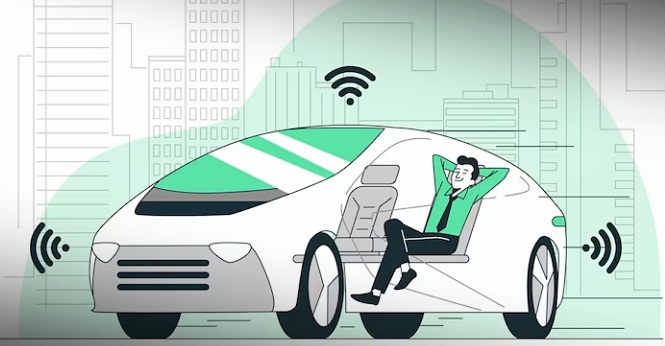Chairman of the transport committee, Conservative MP Iain Stewart, said that driverless cars would generate new jobs in the UK…reports Asian Lite News
Job losses as a result of self-driving cars cannot be allowed to replicate the “ravages of deindustrialisation”, Labour have warned. During the second reading of the Automated Vehicles Bill, Transport Secretary Mark Harper told the Commons it is part of the Government’s plans to make the UK “the natural home for the self-driving vehicle industry”.
The Bill aims to set the legal framework for the safe deployment of self-driving vehicles. Shadow transport secretary Louise Haigh said the mistakes of deindustrialisation cannot be made with the introduction of self-driving cars.
She said: “There is one major area that this Bill does not address and that we’ve not considered in any meaningful capacity, and that is the potential impact on jobs from automated vehicles.
“As a South Yorkshire MP I am all too familiar with the economic impacts of deindustrialisation. Far too many towns and cities across the north have already suffered enough from lost livelihoods, from the social fabric of their communities being ripped apart, as a new economic model left them behind. We simply cannot afford to make those same mistakes again.”
She added: “What steps will (Mr Harper) take to ensure this is a technology that create jobs rather than destroys them, especially in those areas of the country where low paid work dominates? Because it is exactly those areas that are still feeling the ravages of deindustrialisation where driving jobs, warehousing, logistics, all those jobs that bear the highest risks from automation, dominate.”
Chairman of the transport committee, Conservative MP Iain Stewart, said that driverless cars would generate new jobs in the UK.
He said: “We’ve heard very legitimate concerns about jobs from this new technology, but the upside to jobs is, again using Society of Motor Manufacturers and Traders’ figures, 12,000 new direct jobs in automotive manufacturing and over 300,000 additional jobs in the wider economy. So there are economic opportunities, job opportunities, from this new technology.”
SNP transport spokesperson Gavin Newlands said a clearer strategy from the Government was needed “on the societal and economic consequences of a move towards automation of the transport sector”.
He said: “Of course these technologies will create new and novel jobs, but there are 2.7 million jobs in the logistics sector in the UK, not one of these positions will be unaffected – either they will be lost or changed as a result of this new technology. There are around 400,000 taxi and private hire drivers in the UK – if we end up with autonomous taxis, how many of these drivers will remain in jobs in 50 years? What will their jobs be in 50 years’ time? The UK has an unfortunate track record in managing technological change and its impact on the employment market. Deindustrialisation destroyed countless communities across these isles, particularly in Scotland and in swathes of the North of England, in part because there was no plan and no thought put into how to deal with it and support that transition.”
Transport Minister Anthony Browne said: “I think we are getting ahead of ourselves slightly here, because to an extent those impacts will be a very, very long way down the line, and this is an evolution over the coming years and decades, but it’s definitely worth thinking about.
ALSO READ-Opposition launches Labour Indians to connect with diaspora

